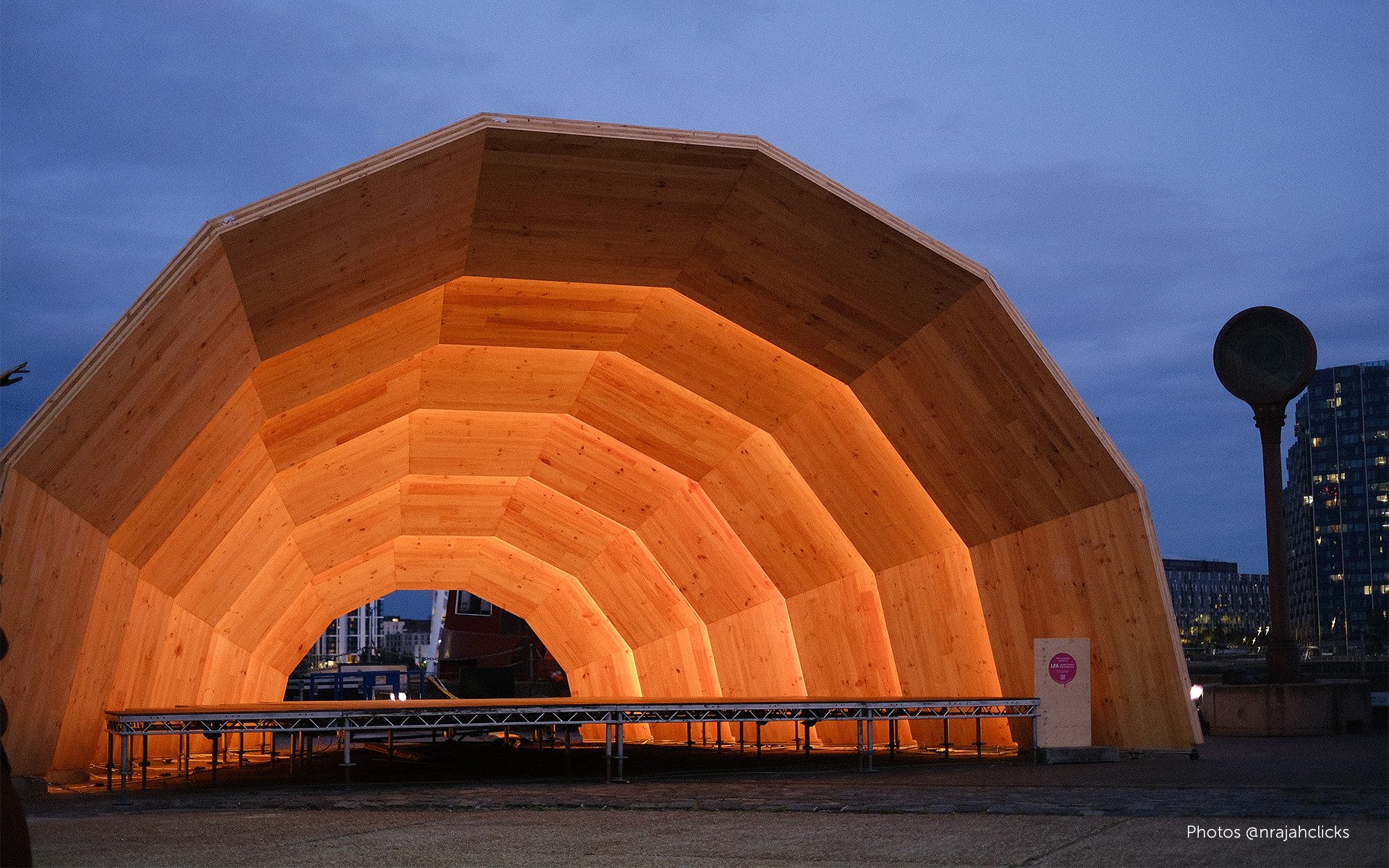
The Armadillo: Eucalyptus CLT design for disassembly
Today on the banks of the Thames in London, tomorrow who knows where, fans of music and architecture might come across an Armadillo.
Unique in its kind, "The Armadillo" is a project resulting from a collaboration between Xilonor CLT, Houghton Music & Arts Festival, Unknown Works, ConstruktCLT, Studio Allen, Rothoblaas, ARUP, Charcoalblue, Smart Space Group and Klimstar, which showcases the potential of CLT made from a material that has never been used in construction before: eucalyptus.
This is a building with a design that will set the standard, a true case study on the use of eucalyptus CLT in architecture: in fact, it is the world's first exposed eucalyptus CLT structure.
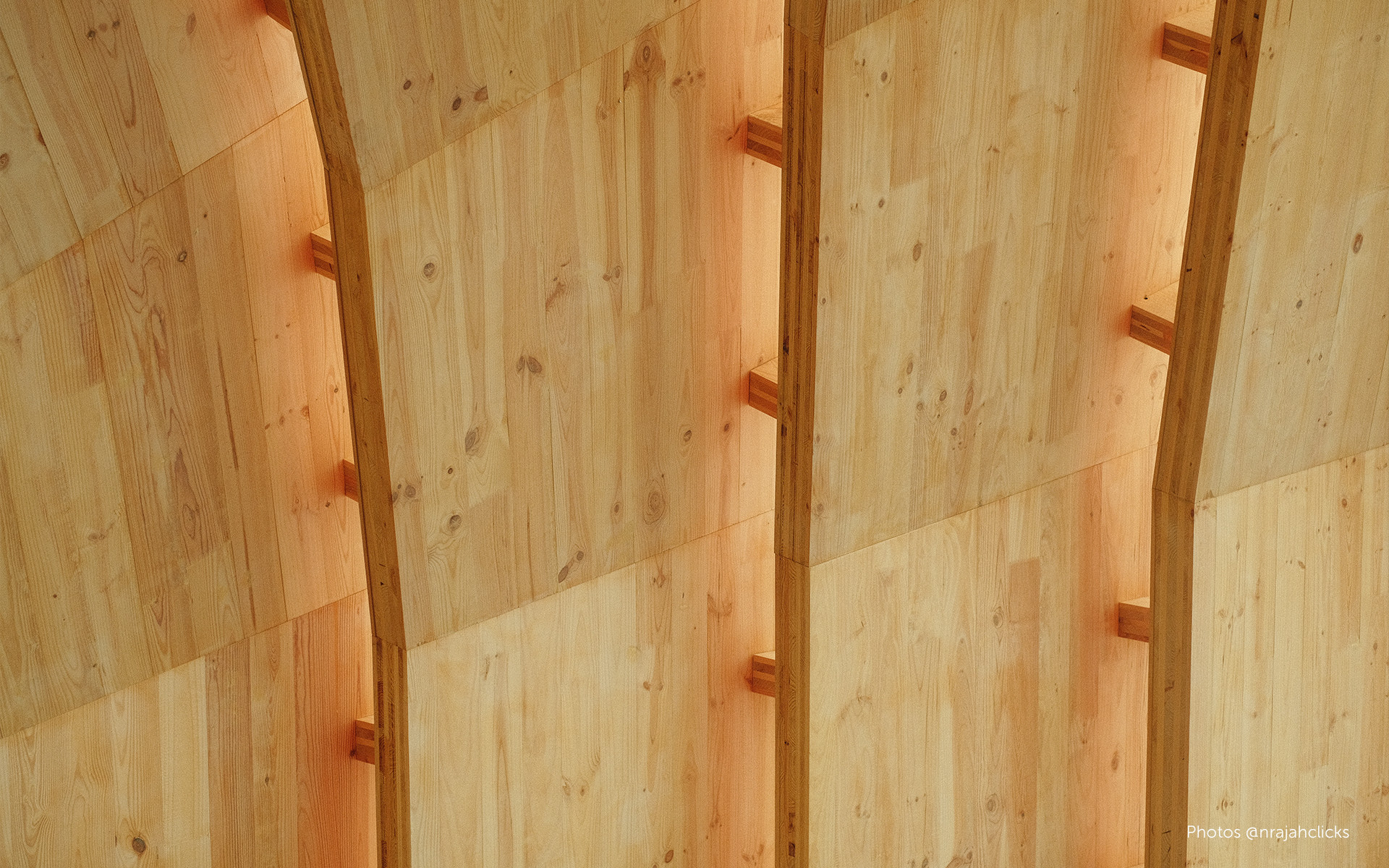
What are the characteristics of Eucalyptus CLT
Unlike the more common CLTs made of spruce or pine, eucalyptus CLT boasts superior structural and aesthetic characteristics. Because of its high mechanical strength and exceptional dimensional stability, "The Armadillo" was created as a lightweight structure that is still incredibly solid and long-lasting.
There is another aspect that makes this pavilion truly unique, however: it can be totally disassembled and reassembled. In fact, from the earliest design stages, "The Armadillo" was designed to be easily assembled, disassembled and rebuilt in different locations, minimising waste and time.
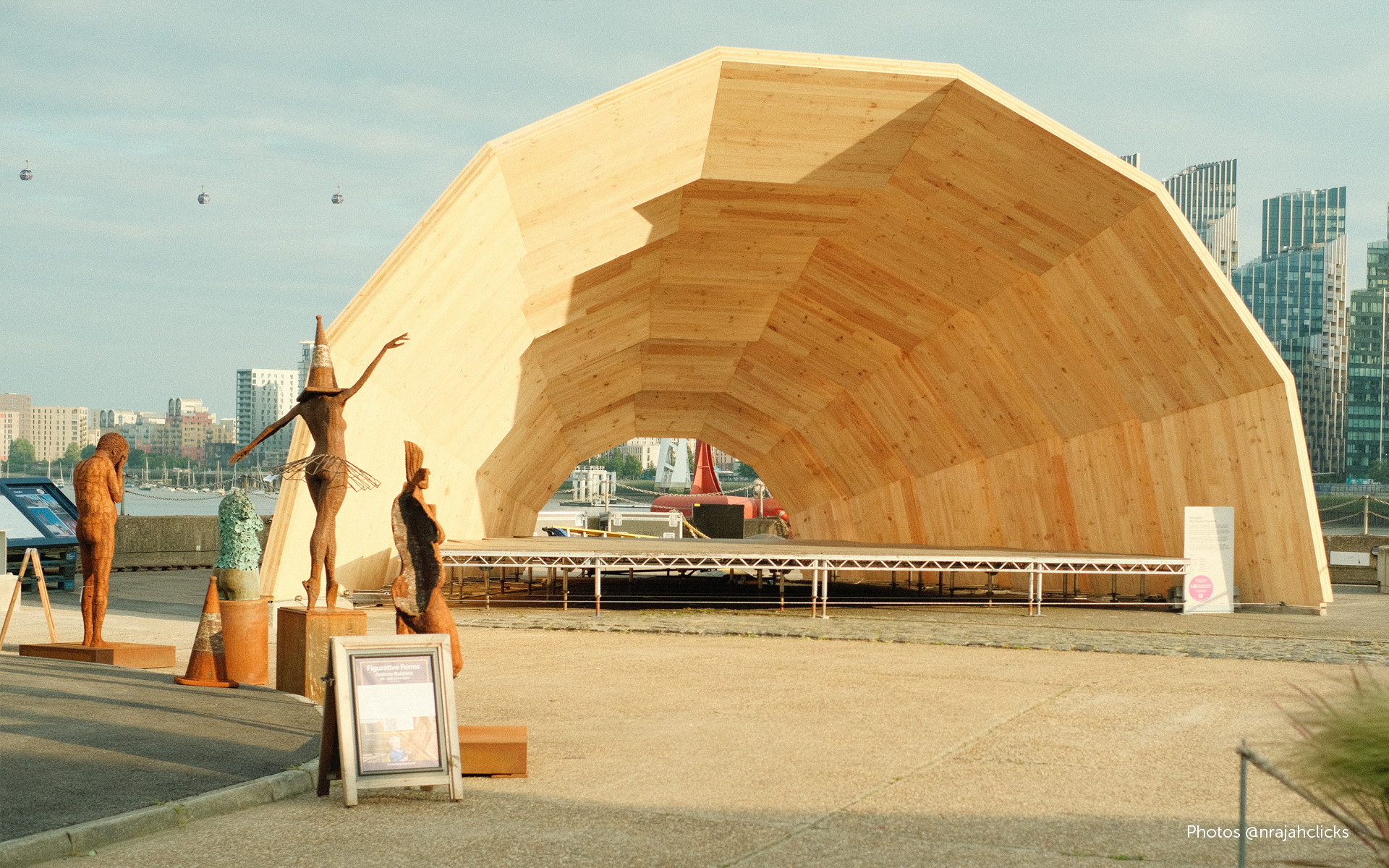
Design for disassembly: what it means
Design for Disassembly (DfD) is a design method which focuses on the creation of products, structures and components that can be easily disassembled and reused, repaired or recycled. An important aspect of this approach is that it reduces the amount of waste and minimises the environmental impact of the product.
It also applies to buildings, and timber buildings in particular are suitable for this type of design.
Design for Disassembly Principles
Design for Disassembly is based on a few key principles:
Simplicity: the product, or in this case the building, must be easy to disassemble and reuse;
Modularity: the product must consist of modular components that can be easily replaced or upgraded;
Standardisation: components and connections must be standardised to facilitate repair and reuse;
Sustainability: the product must be designed to be repairable, recyclable and recycled.
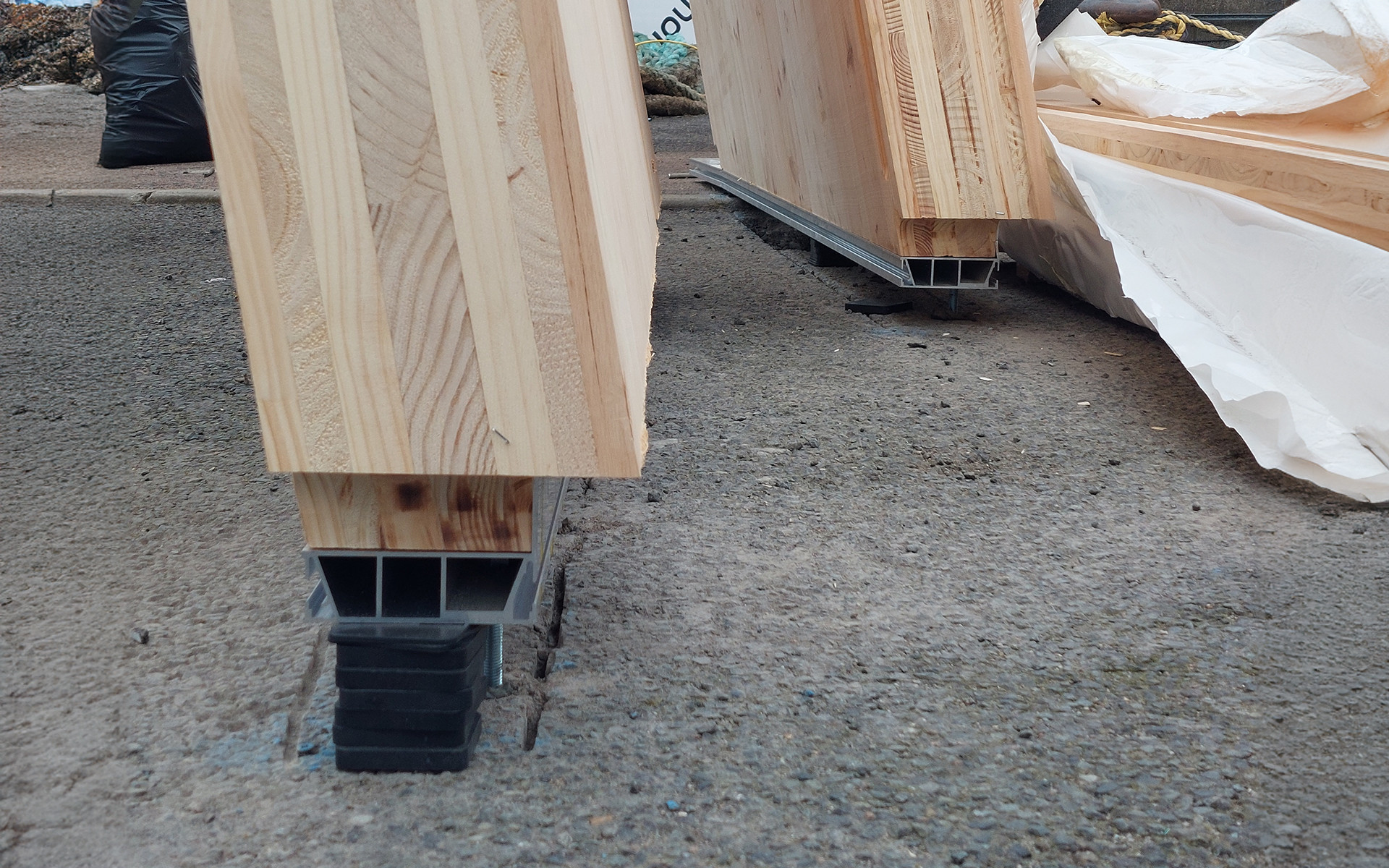
Design for Disassembly Solutions
Rothoblaas solutions played a key role in achieving this goal: they are increasingly adaptable to Design for Disassembly, i.e. a solid yet reversible assembly of timber components.
Using ALU START and some of the best performing screws in our catalogue such as TBS, VGS and LBS, "The Armadillo" has been installed in record time at Trinity Buoy Wharf for the London Festival of Architecture 2024, and it can be transported and reassembled just as quickly.
Next stop: the Houghton Music & Arts Festival in Norfolk, where it will become a permanent stage for the music season.
The ALU START ground connection profile has been chosen because of its ability to transfer shear, tensile and compressive stresses into the foundation, and because of its extraordinary ratio of speed of assembly-disassembly and strength.
The elevation from the foundation and the use of aluminium also allow it to guarantee the protection of the support base from rising damp, while the "levelling" of the entire building is simple, precise and quick.
Thanks to the side flange, the profile was fastened to the walls by means of screws which guarantee excellent strength in all load directions, certified by CE marking according to ETA.
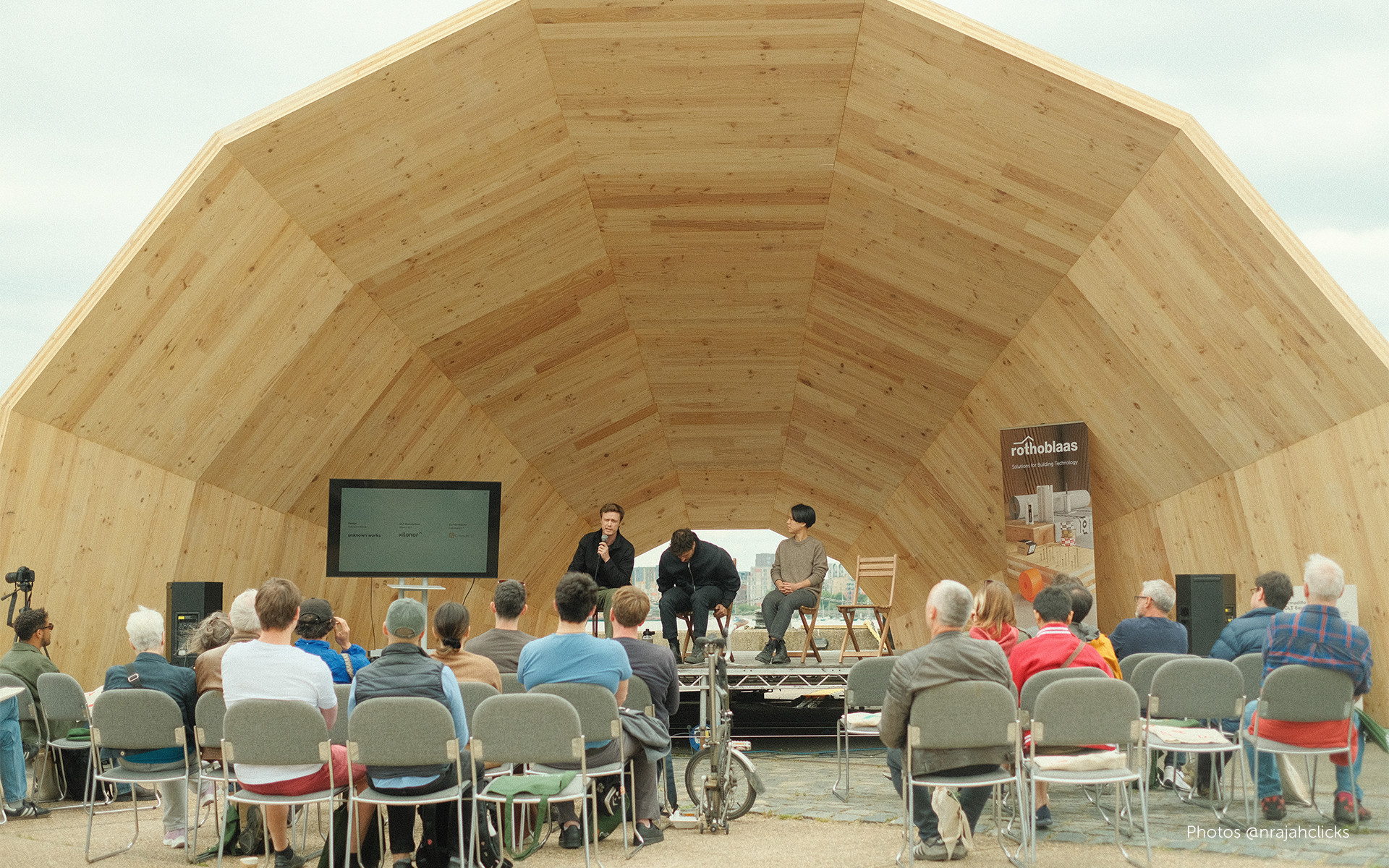
Design for Disassembly and Mass Timber
This design approach for disassembly, which further reduces the environmental impact of timber construction, opens up new perspectives for the use of CLT and reversible fastening systems in the development of temporary structures, exhibition installations or real buildings that can be easily relocated.
From the perspective of the circular economy, the possibility to disassemble and fully reuse the components of an architecture represents a significant step towards greater sustainability in the construction sector.
Instead of producing waste, "The Armadillo" demonstrates that it is possible to give new life to entire structures by simply relocating them.
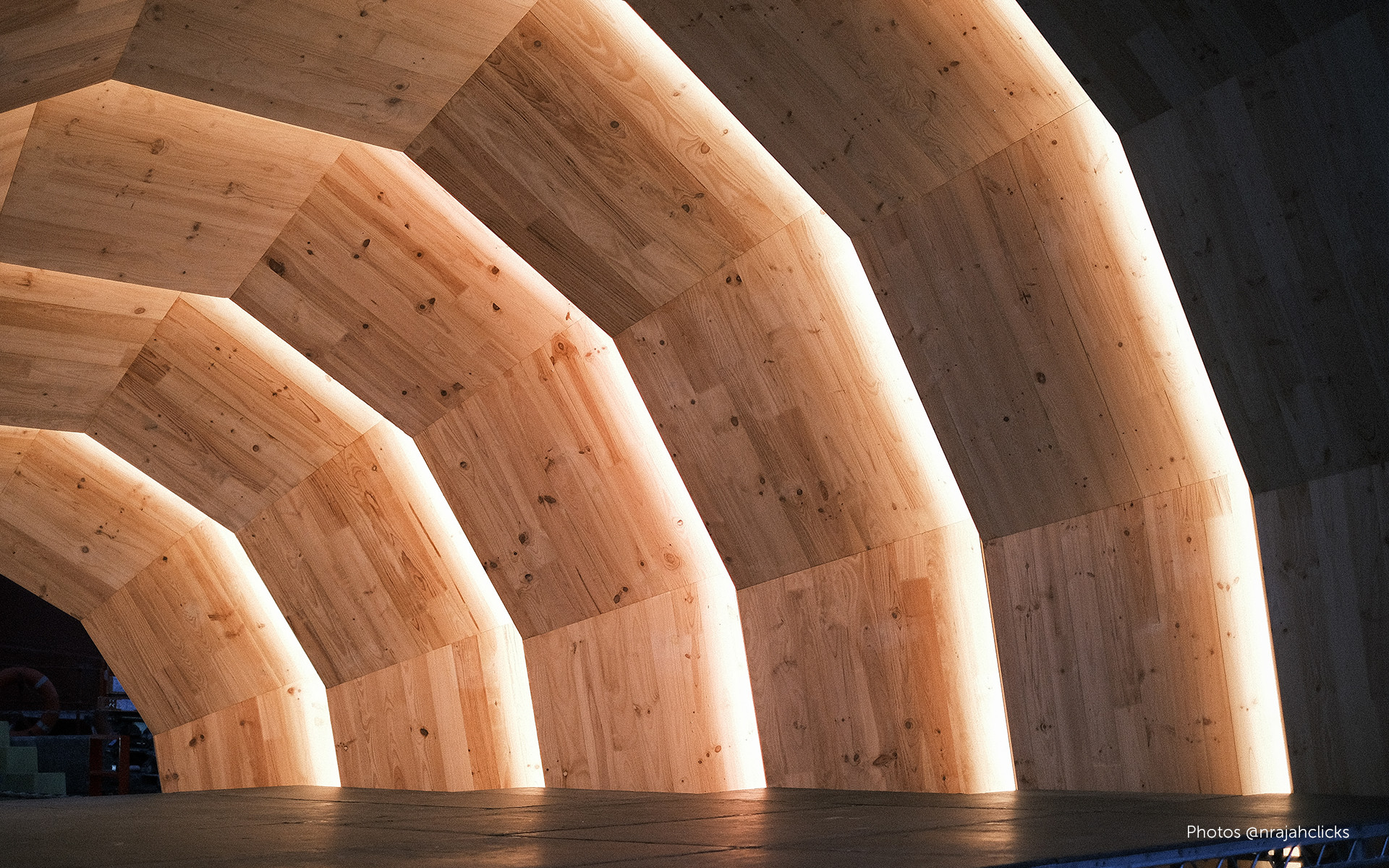
Promising materials for Design for Disassembly
In terms of materials, eucalyptus CLT also proved to be promising. Its very high mechanical strength made it possible to create an imposing exposed structure with reduced thickness, while its natural beauty gave "The Armadillo" an attractive appearance that is at the same time in harmony with its surroundings.
In summary, "The Armadillo" is a concrete demonstration that the combination of environmental-friendly materials, such as CO2-storing CLT, and advanced technical solutions, such as reversible fastening systems, has the potential to create highly flexible architectural designs with minimal waste of resources.
The entire construction industry can draw inspiration from this virtuous model for a more sustainable future. For this reason, Design for Disassembly is part of our new Plates catalogue. Browse it here.
Reprodução reservada
Technical Details
- Year:
- 2024
- Companies:
- Xilonor CLT, Unknown Works, ConstruktCLT, Studio Allen, ARUP, Charcoalblue, Smart Space Group, Klimstar
- Country:
- United Kingdom
- Produtos:
- TBS VGS ALU START LBS







